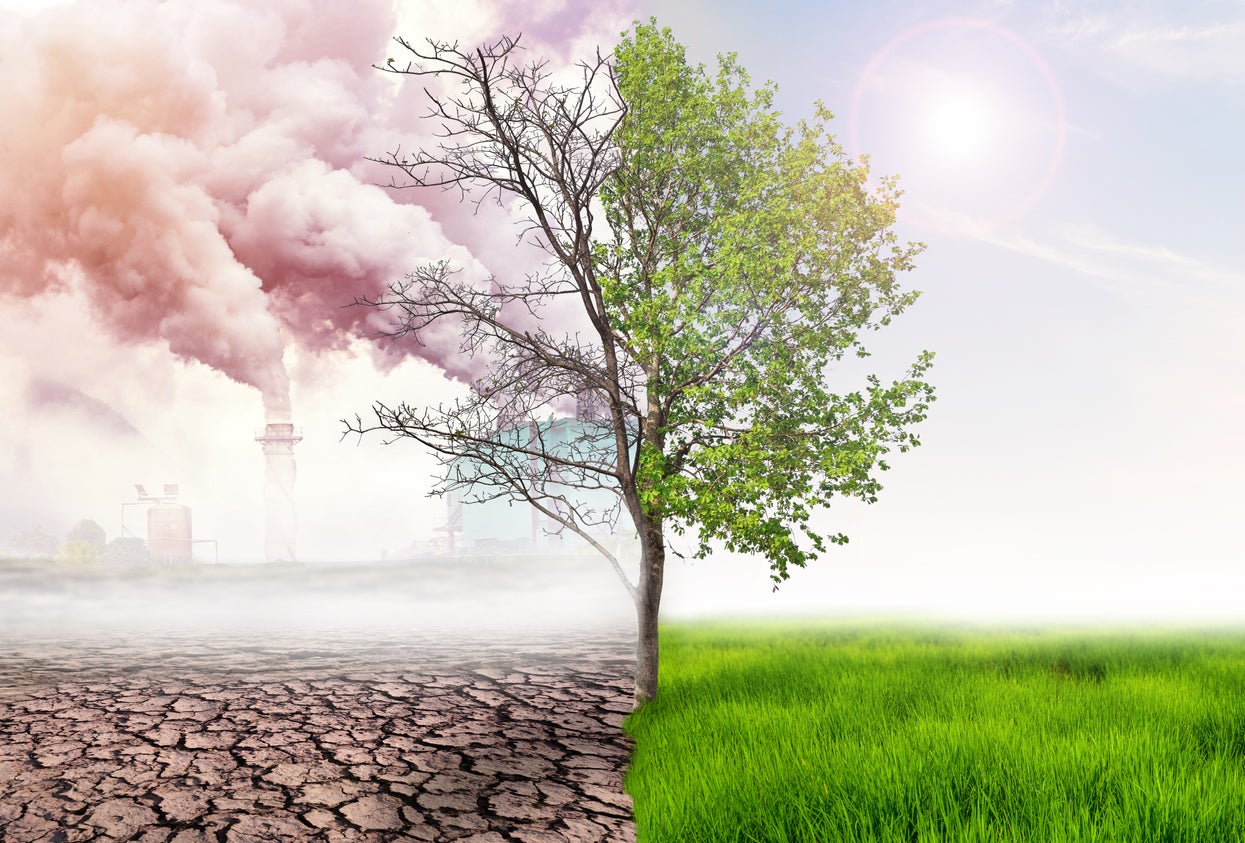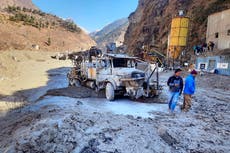The key to tackling the climate crisis is putting oceans and forests at the forefront of economic policy
For too long, we have lived beyond our natural limits and failed to recognise that we live as part of – not apart from – the natural world


Imagine if the global economy had shrunk by 68 per cent in the last 50 years. It would be the equivalent of wiping the economies of the entire G7 – plus China, India and Brazil, off the map. We would have paid attention, fast.
The full weight of human ingenuity and resources across the world’s governments, its business and financial institutions and its civil society would have been brought to bear on the problem.
Yet this is what has happened to our natural world, and it has been unfolding in front of our eyes. Nature is in freefall: the global size of populations of mammals, birds, fish, reptiles and amphibians has collapsed, on average, by 68 per cent since 1970.
It’s not just a disaster for our planet. It’s a disaster for the global economy, our prosperity and security, as Professor Sir Partha Dasgupta has set out so starkly and eloquently in his report The Economics of Biodiversity: The Dasgupta Review. If we fail to stop the destruction of nature which is undertaken daily on an industrial scale, we bankrupt our future.
Tackling the threats to our planet, and to our way of life, means a total rethink of what “business as usual” means. For too long, we have lived beyond our natural limits and failed to recognise that we live as part of – not apart from – the natural world.
Powerful incentives embedded in our economic and financial systems have stacked the odds against sustainable management of the world’s resources. We are using our planet’s resources faster than it can replenish them. And our failure to balance the books with nature means that we could lose entire ecosystems – the environments that sustain all life on earth – forever.
The Dasgupta Review demonstrates that we must now pivot our global economy onto a new, “nature-positive” footing. That means putting the value of nature – the world’s oceans, forests, ice caps, freshwater systems, the very air we breathe – into the economic policies of the future.
There are huge benefits of such an approach: a recent World Wide Fund for Nature (WWF) and Sky Ocean Rescue report showed that investing to restore UK seas could deliver a £50bn boost to the UK economy by 2050, not to mention 100,000 new jobs.
Given the potential gains to be made, and the fact that Covid-19 has already reshaped many aspects of how we do business, world leaders should feel empowered to take radical steps in this direction.

A priority must be in ensuring climate and nature goals become a core part of how decisions are made on all aspects of policy – and in particular, economic and fiscal policy. WWF is calling for the UK government to adopt a new spending test to make sure public spending aligns with their own net zero commitments – so that we’re not undermining our efforts with policies that continue to put the climate and our natural world in peril.
As the host of the next global climate summit, COP26, the UK government has a golden opportunity – and a clear responsibility – to lead the world towards this transformational economic shift.
And as a first step, WWF is urging the prime minister, Boris Johnson, to drive forward a nature-positive global economy by backing our call for a global commission on economy and nature, to ensure countries are working together to tackle this threat.
The Covid crisis has cost us dearly, but it has also showcased humanity’s adaptability and resilience. It has shown what is possible when world leaders act to address urgent threats to humanity as well as the risks of failing to do so.
As we emerge from the pandemic, we must harness positive momentum, and a spirit of innovation and common cause, to address the climate crisis, halt biodiversity loss and start to restore our living planet – ensuring a healthy future for the economy, for nature, and for people.
Tanya Steele is chief executive at WWF
Join our commenting forum
Join thought-provoking conversations, follow other Independent readers and see their replies
Comments


Bookmark popover
Removed from bookmarks